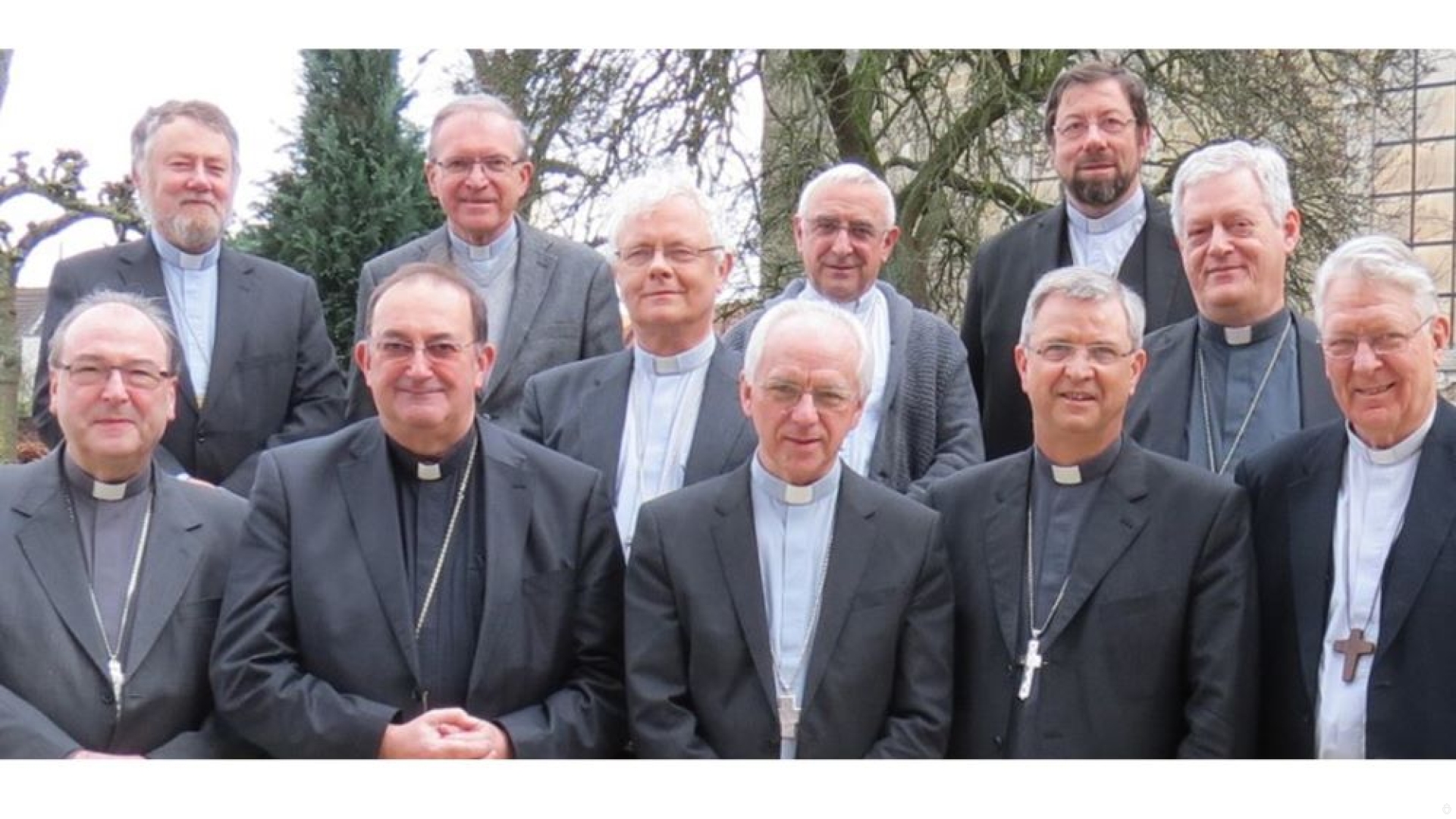Belgium: Episcopate Proposes a Female Diaconate and Married Priests

Belgian Bishops Conference
The summary report of the October 2023 session of the Synod on Synodality requested that the various points recorded in this document be the subject of new discussions, at various levels, to ultimately lead to a new instrumentum laboris, which will be the future basis for the final session which will be held from October 2 to 27, 2024, in Rome.
The Belgian episcopate has published a draft Priorities for Discussions for the second session of the 16th General Assembly of the Synod of Bishops in October 2024. This document of less than five pages is particularly interesting, because it is characteristic of modern theological thought and the serious deviations which pollute it.
The Three Priorities Retained by the Bishops
These “priorities” are summarized in three points. The first concerns the way of being a missionary. And the text notes that “a missionary synodal Church requires an open dialogue that takes into account current developments in the world around us.” Thus, there must be an “open dialogue” with “the evolution of science, culture and society.”
The goal is for the Church to thus “learn things.” Societal developments (in matters of human rights, democracy, and modern freedoms for example) encourage the Church to “review and/or enrich certain of her positions” so that she is led to “question and renew her own understanding of the Good News.”
The second priority calls into question the Tradition of the Church. The text explains that “Tradition/traditions… are the fruit of many developments and continue to evolve.” And it asks: “Do the Tradition(s) of the Church represent the best possible interpretation of the Scriptures for the people of today?”
This calls for “the synod to describe the Tradition/traditions of our Church as being dynamic and constantly developing” through “open conversation with developments in theology, philosophy, and science.”
The third priority is the observation that the first two can experience diverse developments in various parts of the Church: there is a need for “unity in diversity.” Which implies increased responsibility for bishops or episcopal conferences. Hence the request that “the decentralization of certain decisions in the Church take shape.”
Related Article:
The Three Themes
These priorities are applied to three themes “strongly felt in the Church in Belgium.” The first is the place of women in the Church. Based on what “our society teaches: gender equality, the importance of equal opportunities for men and women,” the text asks for “the green light for the episcopal conferences to take certain measures.”
These measures are more specifically that “the attribution of increasing pastoral responsibility to women and the diaconal ordination of women should not be universally obligatory or prohibited.”
The second theme is the “place and meaning of ordained ministry.” Once again, the text listens to “our time and our culture.” It notes that the difficulty of clerical recruitment, as well as the pastoral responsibility shared between priests and laity, must lead to a rediscovery of “the symbolic and sacramental nature of the ordained ministry.”
The two demands that result from this are on the one hand that “priests and deacons assume their pastoral responsibilities within teams in which the laity also have their place and their task,” which will lead to a renewal in the formation of priests and deacons regarding pastoral tasks.
And on the other hand, it is requested “that each conference of bishops or continental episcopal assembly to take certain measures with a view to the priestly ordination of ‘viri probati.’ The priestly ordination of ‘viri probati’ should not be universally obligatory or prohibited.”
The third theme concerns “young people and digital culture,” and calls for cooperation between all ecclesial actors so that the Church is present in the digital world.
Related Article:
Conclusion
The conception of Tradition presented by this text is the fruit of the Second Vatican Council through the dogmatic constitution Dei Verbum which wanted to bring together the two sources defined by the Council of Trent – Sacred Scripture and Tradition – in some way in one. Associated with this is the notion of “living tradition,” lived in each era of the history of the Church.
Thus, Tradition is considered as the interpretation of Holy Scripture in each era according to its culture, its philosophy or even the development of sciences. Which means that it is essentially evolutionary. It is no longer the Tradition of the Church as defined by the Council of Trent: an immutable source of Revelation.
In this modernist system, nothing in doctrine is safe from a change, a transformation, or an evolution which transforms the dogma into its opposite. The document from the Belgian bishops is a caricature of this, but alas! very – too much – shared by a number of bishops. Unfortunately, they no longer profess the Catholic faith.
Certainly, priestly celibacy should not be put on the same level as the priesthood reserved for men, a point which cannot change. But questioning this discipline is part of this perpetual evolution. As for differentiated decision-making, this makes it possible to consider the blessing of same-sex couples as perfectly lawful in Belgium, and refuse it elsewhere.
Unity in diversity, in these conditions, amounts to the fragmentation of the doctrine and discipline of the Church into multiple more or less opposed opinions. It is no longer the Catholic Church, but a church that has become Protestant.
(Source : cathobel – FSSPX.Actualités)
Illustration : diocese.be





